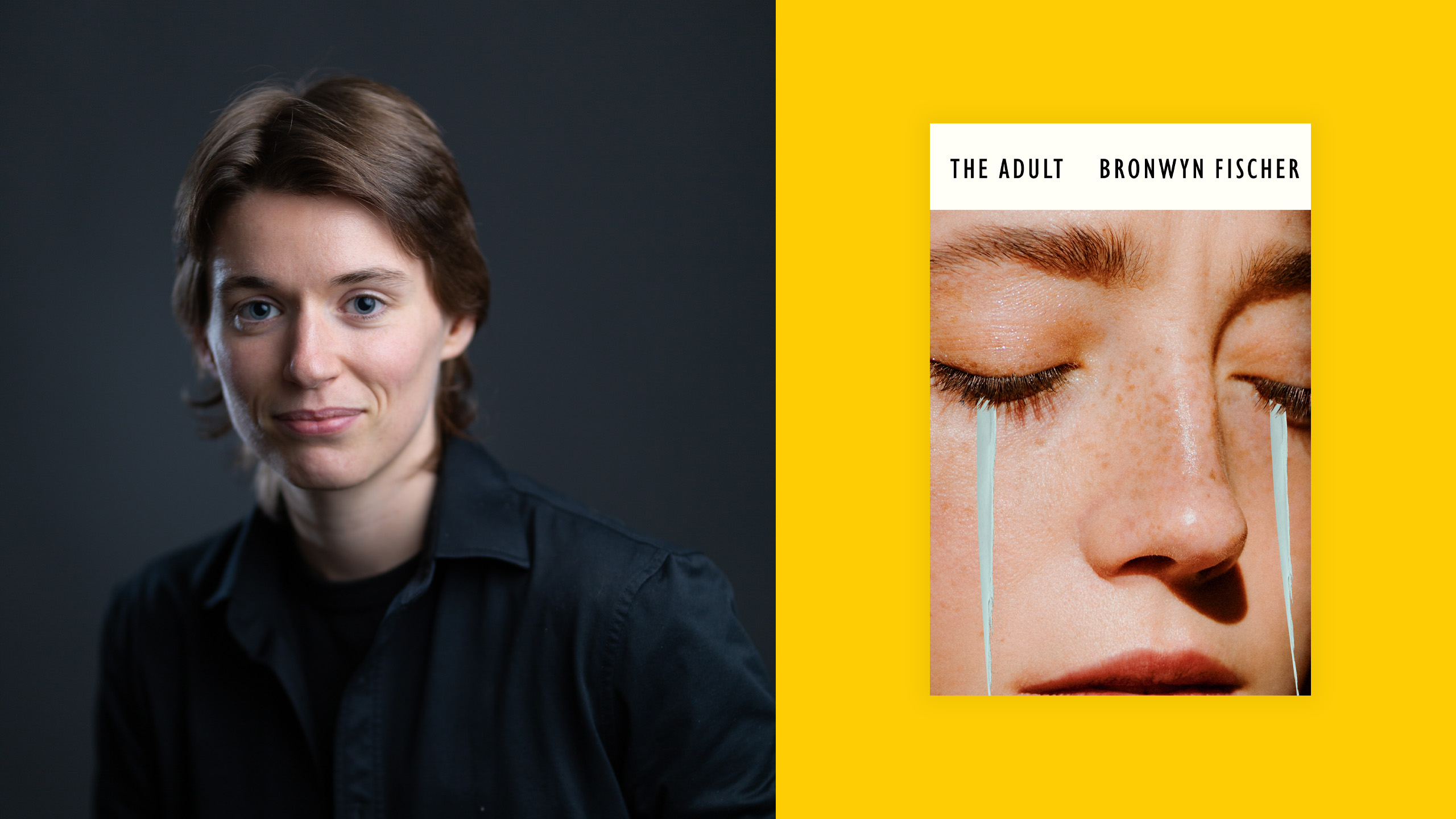“I think it’s odd that you like me,” Natalie, the 18-year-old protagonist of The Adult tells Nora, her 30-something lover. “It’s odd that there’s so much more to you than there is to me […] Compared to you, I think about almost nothing.” The uncertain young lesbian is a common and often compelling character in fiction, especially when her uncertainty and need for validation lead her to enter into a relationship with an older, more experienced woman. Patricia Highsmith’s The Price of Salt comes immediately to mind, of course, as do more recent classics like Mariko and Jillian Tamaki’s hit graphic novel Skim and, though the age gap involved is smaller, Julie Maroh’s Blue Is the Warmest Colour. There is a risk and a discomfort to these age-imbalanced relationships (which appear in literature about young gay men as well—Call Me by Your Name, anyone?). These queer age-gap relationships hold a lasting fascination—three of these titles were made into blockbuster films within the last decade.
The Adult is a masterful debut from Bronwyn Fischer, a graduate of the University of Guelph’s MFA program, who now lives in Toronto. This confident, perceptive novel follows 18-year-old Natalie as she navigates her first queer relationship, as well as her growing relationship to poetry and to herself as a writer. Contrary to her assertion, Natalie does not “think about almost nothing.” In fact, she is so aware of the people and environments that surround her that, if anything, she thinks too much. At the book’s opening, she has just arrived in Toronto from Temagami, a small community in northern Ontario, where she grew up helping her parents run the family inn, avoiding the need to have much of a social life. Now enrolled at the University of Toronto, living in a campus dorm among strangers, she struggles to find her footing, constantly getting tripped up by overanalyzing everything, from minor interpersonal interactions, to her own emotional reactions to her experiences. Natalie is in desperate and fumbling search of models for how she should be (there are echoes of Sheila Heti’s debut novel here). Like many anxious people, she assumes that everyone else has it all figured out. She perceives these signs of self-confidence and inner knowledge everywhere. Passing a student on campus with patches on his jacket, Natalie wonders “if I should buy a more specific jacket. One that could quickly show the core elements of my character.” In the dining hall and at bars and parties, she is hyperaware of her own speech, her reactions to her peers, their reactions to her. Not only is she constantly basing her behaviour on what she sees others doing, but she is also painfully aware of how awkward this is. Imitating a classmate’s confident posture, Natalie enacts “an unconscious copying that became conscious as I copied it.”
The class that compels Natalie most is a course on nature poetry, taught by the impressive Jones (who goes by her last name, of course), an already-successful queer poet in her late 30s who dispenses literary wisdom and astute critique, and is rumoured to have slept with a student the previous year. Natalie, painfully attuned to the world around her, is drawn to poetic expression, and yet finds herself just as uncertain in the class as she is everywhere else, perhaps even more so because she cares about it deeply. She copies the reading practices of her seemingly confident classmate Rachel, who, she believes, reads “better” than her, but can’t bring herself read the actual books, even though she endearingly makes sure that other people see her paging through them; instead, she resorts to googling online reviews and synopses to figure out what her opinions of the unread books should be. We understand that this behaviour is not due to a dislike of reading, but rather to an unshakable fear that even if she reads all the correct books, she will be unable to form the correct opinions about them, rendering the reading a failure—a fear that anyone who has done an liberal arts undergraduate degree can probably relate to.
Just as Natalie is trying to approach poetry, she is herself approached by a beautiful older woman. Natalie is enthralled—she has already noticed this woman from across the park, while sitting on a bench and trying to write a nature poem for class. The woman’s demeanour has its own specific poetry, or perhaps a poetry that the aspiring young writer imbues her with: “She held the handle of her umbrella as though at any moment she might use it to shift gears.” As the woman rises and moves toward Natalie, “the air around her seemed shyer, it seemed to softly petal from her.” Nora pointedly asks Natalie how old she is, but doesn’t offer her own age once Natalie tells her that she’s 18. It doesn’t take much for Natalie to fall desperately in love with Nora, who, it turns out, is in her mid-to-late 30s and recently separated from her wife. Nora still lives in the impressive marital home, where Natalie visits nearly every night after class.
“It would be easy to position Natalie as a victim—of her own desire, of a predatory older lesbian—but Fischer smartly avoids this.”
Nora’s apparent self-assurance, combined with her unexpected interest in Natalie, is irresistible. Natalie is enthralled by Nora’s beauty, but also by the effect of Nora’s attention. Earlier, feeling out of place on campus, and consumed with worry about every tiny decision she makes, Natalie wonders “if soon, someone would tell me what I should be.” Nora, she decides, is that person. Nora looks at her “as though I were real.” There is an insidious risk to this, of course, and the reader can see the emotional danger of this relationship more and more clearly as Natalie loses herself in it. In addition to being so much older and more experienced than Natalie, Nora has secrets that threaten to break the relationship apart—and we slowly, through details carefully choreographed by Fischer, surmise what has motivated her to strike up this thoroughly imbalanced romantic relationship with a teenager, smart and thoughtful as Natalie is.
The power imbalance in Natalie and Nora’s relationship looms large, especially once the details of Nora’s life begin to emerge, but Fischer writes their relationship with a lifelike ambiguity, rather than adopting a narrative attitude of obvious concern or judgment. Power dynamics shift now and then between them, even though, as readers, we are aware that Nora’s age and life experience give her the upper hand overall. Fischer’s subtle command of these minute shifts, of the perpetual dance between them, is intoxicating—I’m reminded of the emotional command of Brandon Taylor, whose debut novel Real Life plumbs the intricate interpersonal dynamics of a group of grad students with an introverted gay character at its centre. It would be easy to position Natalie as a victim—of her own desire, of a predatory older lesbian—but Fischer smartly avoids this. Though she feels her youth and her naiveté with Nora, Natalie also finds a new boldness in herself, a physical assurance and embodiment that we don’t see her exhibit anywhere else. She is the one who, early on, asks if the two of them are on a date. When they have sex for the first time, Natalie remembers: “I felt constantly on the edge of a fall. I raised my eyes toward her face. At first I copied her, and then I didn’t, and then her thighs pressed closed on my cheeks and I thought, This is how it begins.”
There is a refreshing lack of anguish around Natalie’s queerness, for the most part, in The Adult. This is not a queer coming-of-age story that centres on a main character’s confusion around their sexuality, though there is a central plotline that involves Natalie pretending that she’s dating an older man named Paul, because her one close friend exhibits internalized homophobia, possibly as a reaction to her own queer desires. However, this lie functions less as a locus of shame for Natalie, and more as a way to further isolate her in her relationship, which is already clandestine because Nora doesn’t want her friends to know she’s dating an undergraduate student. Natalie doesn’t seem to carry a lot of queer baggage: her parents know or assume that she’s gay, without any apparent issue. She is nervous in her new romance, but the anxiety stems more from other factors: this is her first-ever romantic or sexual relationship, with a woman 20 years her senior, who has just separated from her wife—an intimidatingly adult situation. As with everything else she’s unsure of, Natalie compulsively googles and watches videos on how to date older women, how to appeal to older women, how to seem young and spontaneous in order to keep an older woman’s interest—though the advice she finds is always geared toward a younger male hopeful. There is so much information online about how to live, but the more she consults listicles and advice videos, the more uncertain she becomes.
It is only once her relationship has taken a dire turn that Natalie, with the help of some unexpected friends, starts to trust her own instincts. She begins to find assurance in her own writing, to apply Jones’s poetry advice: “write what’s true, specifically, about your own mind,” instead of trying to appeal to an imagined “everybody.” When Natalie finally writes a poem for Jones’s class that she feels good about within herself, rather than because it earns praise from someone else, she finds that it’s “the first time the poem didn’t disappear immediately after I’d finished reading it [out loud].” This tangible quality is present throughout The Adult. Fischer draws from the deep emotional wells of young adulthood, without resorting to dramatic reveals or exaggerated confrontations. When the revelations do happen—and they do, to the satisfaction of any reader in search of the headiness of lesbian heartbreak, they are never for shock value, but always slowly and painfully earned. Fischer is a new talent to watch—a young fiction writer with a poet’s ears and eyes, whose understanding of queer heads and hearts is already compelling and indispensable.


 Why you can trust Xtra
Why you can trust Xtra


